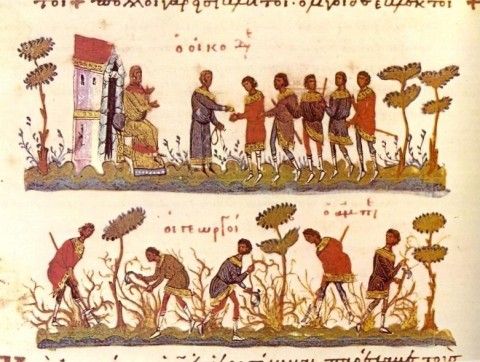Warning: The last shall be first
Who is this leader who issues this warning? Do we even begin to believe that he's the Christ?

Church of the Saviour founder Gordon Cosby was my mentor, and together we cofounded Becoming Church. Last year, as Gordon was dying, he shared with me his thoughts for a “final sermon.” Because a person’s authority can be most compelling after he or she dies, we agreed that I would share his words after his death. Below is my transcription and edit of Gordon’s words—of the sermon he told me he should have preached again and again. —Rebecca Stelle, director, Becoming Church
As I am dying, I am seeing in a new way. I am seeing that weakness is a gift.
It’s appalling to me that the most recognized warning in history—issued by an international leader—has for the most part gone unheeded. What is this warning? It’s Jesus’ clear and frightening statement that the last shall be first and the first shall be last.
I didn’t preach this warning earlier in my life. It has been a deficit in my preaching. I didn’t believe that anybody would understand that this is the most important thing. I’m not sure I believed it myself. And I didn’t feel that I was close enough to the last and the least of these to write about this with any authority.
I do now. Now my wife and I live in a little hospital for homeless men. Every day we are in the midst of them, in the midst of the ones that Jesus said would be first. Every day, at least on the outside, we qualify in a new way as a part of those whom Jesus said would be revered.
Dying helps us to see weakness, and weakness is where God’s strength is made perfect. It is not until we are utterly bereft of confidence in ourselves that we believe in weakness. Until then, we resist weakness.
Yet it is a gift, not a terrible unreality that we have to accept. It is a gift to see at a new level the glorification of weakness. In dying, I’ve been given the gift of seeing. I want to give others the gift of seeing before it is too late, before it is too late for the world.
Jesus himself calls this way of weakness “the way, the truth, and the life.” We do not take this seriously. We’re not even committed to it as a principle, much less to actually doing it. Who is this international leader who issues the warning about the first and the last? Is Jesus the Christ? We make a dramatic effort to say he was. Do we even begin to believe this?
In the course of my ministry, I was a board member for many organizations. One was a prestigious and well-intentioned foundation, with a board comprised of deeply appreciated and recognized people. The people they listened to were those who were most accomplished, those who had done important things. They did not listen to Jesus of Nazareth. He was a nobody. They listened to the group’s most impressive speakers, not the last and the least of these.
The warning of Jesus is being ignored. It’s a warning against what is now the dominant consciousness. Our culture’s assumptions about what comprises a good life, a successful life, are exactly the opposite of that to which Jesus calls us. If one is successful in the world’s sense, then the very things we boast about are signs of our failure.
How do we move toward becoming part of the people whom Jesus felt would be a serious part of the way the world would function in the future? Are we closer now to that which will last forever? Are we being serious about this warning, and do we care whether the one who gave it is serious about it? Is our real feeling that this is not a serious warning?
The world must see in a new way. We must trust only what we know through our connection with the Ultimate—the one who alone knows how the universe works, how it will turn out, what God is bringing it toward, and why it is taking so long.





